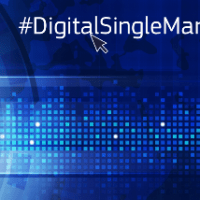Under considerable media attention the e-G8 summit was held in Paris on May 24 and 25, the two days prior to the Deauville G8 summit of Heads of States, to discuss and propose a number of initiatives to highlight the importance of the Internet for our globalised world and economies.
I had the pleasure to attend the meeting representing Telefónica and believe that it is worth pointing out some interesting issues of the debates.
Although the size of the summit with around 1000 participants made it impossible on the outset to accomplish its objective – to discuss and propose a series of initiatives about the Internet to the G8 – this meeting should be valued very highly because it is the first time that such issues have been included in the agenda of a meeting at such a high political level. One of our long-standing concerns have been that the challenges of the telecommunication industry are not adequately incorporated to the political agenda and today the Internet is a central issue in our sector’s agenda and for our business activities.
Nevertheless the presence of the telecommunication sector was limited, especially among the speakers, but many debates highlighted the importance of networks for the development of the Internet and the need to ensure the growth of the Internet through the development of innovative broadband services. Nobody denied that need and I felt that our view that adequate policies to foster fixed and mobile networks broadband roll-out are crucial for the Internet were well represented there.
More controversy was created by another central topic of Internet policy debate: the protection of intellectual property rights. Here the very vivid debate reflected the different positions between the more traditional content industry and new businesses that use the Internet as a basis to develop new services. The discussion was lively and most of the time took over the majority of the discussions of the summit. It was notable that we were in Paris and that this is an issue of particular concern to and in France. By the way, we have to emphasize the commitment of the French administration for this summit: the conference was attended by the President of the Republic and four ministers, which were also directly participating in the debates. This effort clearly paid off as the media coverage was widespread in France and internationally.
The eG8 conference was referred to in the Final Declaration of the G8 summit in Deauville, which is in itself very positive. Even better is that the points included in the declaration focus in fact on the current challenges of Internet policy: Broadband infrastructure, privacy & data protection, security and Internet governance.
In summary, the eG8 has been very important more for the fact that it happened and the Internet found its way into top-level global policy-making and to a somehow lesser degree for the content of its debate. The latter had been criticized by some observers. However, I believe that looking back the eG8 and the Deauville summit of G8 will be rather remembered as the first time in history that the Internet had been included on the agenda of the G8 as one of the global policy issues.
It is also encouraging to see that ongoing efforts like the Internet Governance Forum (IGF) and important policy principles like multi-stakeholder engagement are acknowledged in the final declaration of the G8.
I hope that this effort will continue in the next G8 and maybe even G20 summits and this first step will be built on.
We believe that the Internet and broadband deserves global policy-makers attention.
For sure it has and will have ours.
